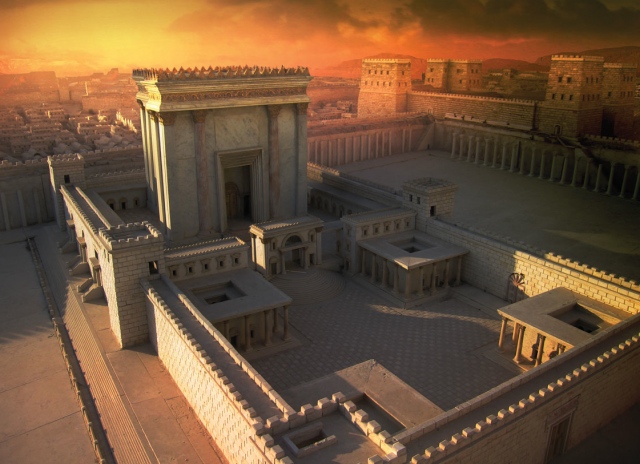

The influence of Judaism, Christianity, and Islam on world culture and history is immeasurable, so a basic understanding of them is highly important.
The history of Judaism proper begins with the Patriarchs: Abraham, Isaac, and Jacob. According to the Book of Genesis (which scholars believe was first written down in the 6th century BC, although the stories are much older), Abraham moved from the Mesopotamian city of Ur into an area called Canaan, modern-day Israel. He had two sons, Ishmael and Isaac. Isaac's son Jacob was also known as "Israel" and eventually moved to Egypt along with his twelve sons during a famine.
The Book of Exodus says that the Israelites (now known as the Twelve Tribes based on Jacob's descendants) eventually became enslaved by the Egyptians until they were led out (with the help of the ten plagues and the parting of the Red Sea) by Moses. They wandered in the desert for forty years, received the Ten Commandments at Mount Sinai, and entered the "Promised Land" of Canaan, where Abraham had lived. Under Joshua, the Israelites conquered and settled Canaan. Although scholars debate to what extent the preceding stories are historical, from this point the biblical narrative is clearly corroborated by other historical sources.
The Twelve Tribes of Israel lived as a lose confederation until they were united into a single kingdom first by Saul and then King David in 1050 BC. The reign of David and his son Solomon is considered the golden age of Israel. It was during this time that many of the psalms and wisdom literature (such as proverbs and Ecclesiastes) were written. After Solomon's reign, the kingdom split in two. The northern ten tribes broke away in 931 BC, forming the Kingdom of Israel with its capital at Samaria. The northern kingdom was conquered by the Assyrians in 722 BC.
The two tribes remaining in the south were known as the Kingdom of Judah, retaining David's original capital of Jerusalem. This kingdom persisted until 586 BC, when it was conquered by the Babylonians. Much of the population was brought to Babylon in what is known as the Babylonian Exile. They remained there until 539 BC, when the Babylonians were conquered by the Persians and Cyrus the Great allowed the exiles to return.
Judah was conquered along with the rest of the Persian Empire by Alexander the Great in 320 BC. In 167 BC, Judas Maccabeus led the Jews (people from Judah) in a revolt against the Greeks. For support, the Jews appealed to the Roman Republic. The Jews did indeed achieve independence from the Greeks, but were then conquered by the Roman general Pompey in 63 BC.